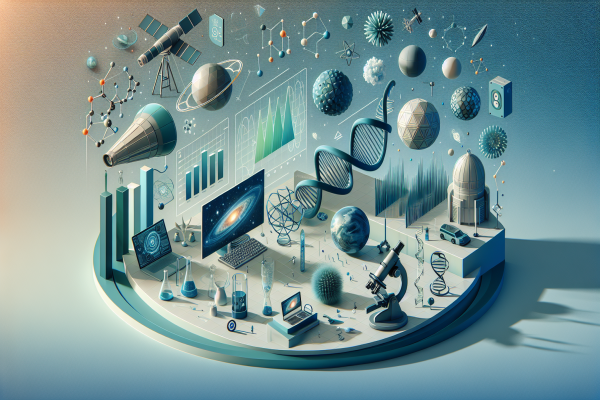The Silent Scientific Revolution
While AI makes headlines in tech, its most profound impact is happening quietly in laboratories worldwide. Scientists are using AI to unlock mysteries that have puzzled humanity for centuries, from the depths of space to the building blocks of life.
AI's Groundbreaking Role in Space Exploration
In the vast expanse of space, AI is becoming astronomers' most valuable partner. NASA's Transiting Exoplanet Survey Satellite (TESS), powered by machine learning algorithms, has identified over 2,200 candidate exoplanets since 2018. Google's AI helped astronomers discover Kepler-90i, making it the first star known to host as many planets as our solar system.
Mars Exploration Revolution
The Perseverance rover's AI-powered navigation system has revolutionized Mars exploration. This autonomous driving capability allows the rover to cover more ground in a day than any previous Mars mission, increasing scientific data collection by 300% compared to earlier rovers.
Particle Physics: AI at the Frontier of Matter
At CERN's Large Hadron Collider, AI systems process millions of particle collisions per second, identifying patterns that would take humans centuries to analyze. In 2023, this led to the discovery of three new exotic particles, advancing our understanding of quantum physics.
Materials Science Breakthroughs
DeepMind's materials prediction algorithms have accelerated the discovery of new compounds by analyzing atomic structures and properties. A notable success was MIT's AI system identifying a new antibiotic compound effective against drug-resistant bacteria, accomplishing in days what traditionally took years.
The Genomics Revolution
AlphaFold's breakthrough in protein structure prediction has transformed biological research. Scientists can now predict a protein's 3D structure in hours instead of months, accelerating drug development and disease understanding. This technology has already helped develop treatments for previously untreatable rare diseases.
AI in Climate Science: Understanding Our Planet
Climate modeling has taken a quantum leap with AI. DeepMind's deep learning systems now predict weather patterns with 89% accuracy up to 10 days in advance, while Microsoft's AI for Earth program helps track global environmental changes in real-time.
Looking to the Future
As AI continues to evolve, its role in scientific discovery will only grow. From quantum computing to renewable energy research, AI is not just assisting scientists – it's becoming an indispensable partner in pushing the boundaries of human knowledge.
References:
- NASA's Exoplanet Exploration Program (2023)
- CERN Research Data Portal (2023)
- Nature Journal: AI in Drug Discovery (2023)
- DeepMind Research Publications (2023)

